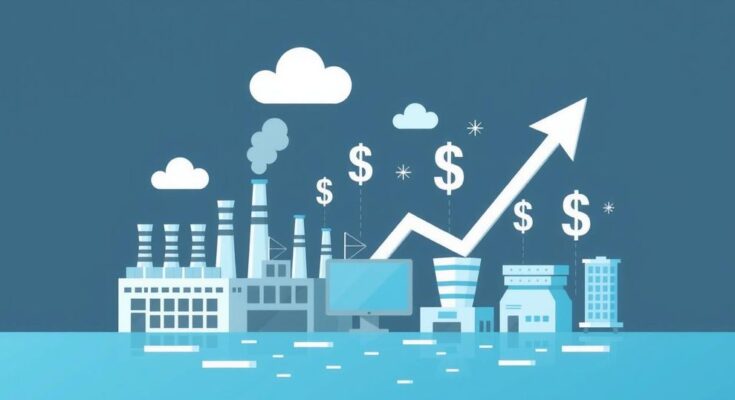The Trump administration has embarked on a significant purge of federal employees, potentially marking the largest job cuts in U.S. history. Economists warn this could have profound local economic ramifications. With the involvement of Elon Musk’s so-called Department of Government Efficiency, a wave of dismissals and buyouts is sweeping through the federal workforce, which represents the largest employer in the nation.
While the exact scale of job losses remains uncertain, experts suggest that tens of thousands have already been laid off. The administration’s focus on terminating “probationary” employees—those recently hired without firm civil service protections—could significantly impact the 220,000 federal workers in that category as of May 2024.
In addition to those terminated, over 75,000 federal workers accepted buyouts, amounting to a staggering potential total of 300,000 job cuts. Callie Cox from Ritholtz Wealth Management indicated that this labour upheaval is unprecedented. Furthermore, other groups like contractors at the U.S. Agency for International Development also face possible layoffs.
Job cuts are sweeping across numerous federal agencies, including the IRS and the National Park Service. These layoffs carry serious implications for local economies. Cox emphasised that the outcomes of this mass dismissal might reveal how vital federal jobs are for the national economy.
Assessments of the potential job cuts suggest the ultimate figures might not reach 300,000 due to some overlapping cases of dismissed workers accepting buyouts. However, studies indicate around 26,000 workers have already been let go, a figure that mirrors job losses seen during the Lehman Brothers collapse.
Economists like Thomas Ryan estimate that between 100,000 and 200,000 federal employees might have been dismissed, eclipsing notable past corporate layoffs. Historically significant reductions have occurred in the military and major corporations, but the current downsizing presents an unprecedented scale in federal employment terms.
Although the White House has not revealed exact numbers, spokespeople assert that these actions align with a plan to eliminate wasteful spending and render agencies more efficient by removing non-critical personnel. Economic impacts from job losses can extend beyond the individual, influencing family finances and local businesses reliant on consumer spending.
Laid-off workers often find difficulty securing new employment, leading to long-term economic consequences. Their diminished buying power affects local businesses, creating a domino effect within the community. Moreover, the psychological effects may lead remaining federal employees to pull back on expenditures, exacerbating the economic downturn.
Washington, D.C., may see a notable uptick in unemployment, possibly ushering in a mild recession. Areas with strong ties to government employment may also face adverse impacts, according to economists.
Despite these cuts, broader economic impacts may be limited, with some economists suggesting the overall workforce remains robust. Any resulting downturn from the job losses may not lead to an outright recession, particularly if the economy can quickly absorb displaced workers due to low unemployment levels.
The Trump administration’s wave of federal job cuts could be historic, potentially impacting nearly 300,000 workers. This includes layoffs and buyouts among probationary employees, with significant implications for local economies, particularly in Washington, D.C. Although broader economic effects may be limited, the situation raises concerns about financial ripples across communities due to decreased consumer spending.
The Trump administration’s sweeping job cuts in the federal sector pose considerable implications for economies at both local and national levels. While the actual number of layoffs may fall short of projections, the economic ripple effects of such mass employment change are likely to be significant. Overall, while the implications could lead to local downturns, the wider U.S. economy may not face an immediate recession as it braces for these sweeping changes.
Original Source: www.cnbc.com



